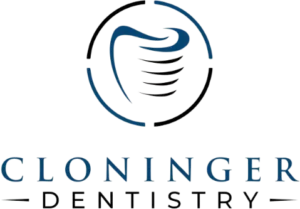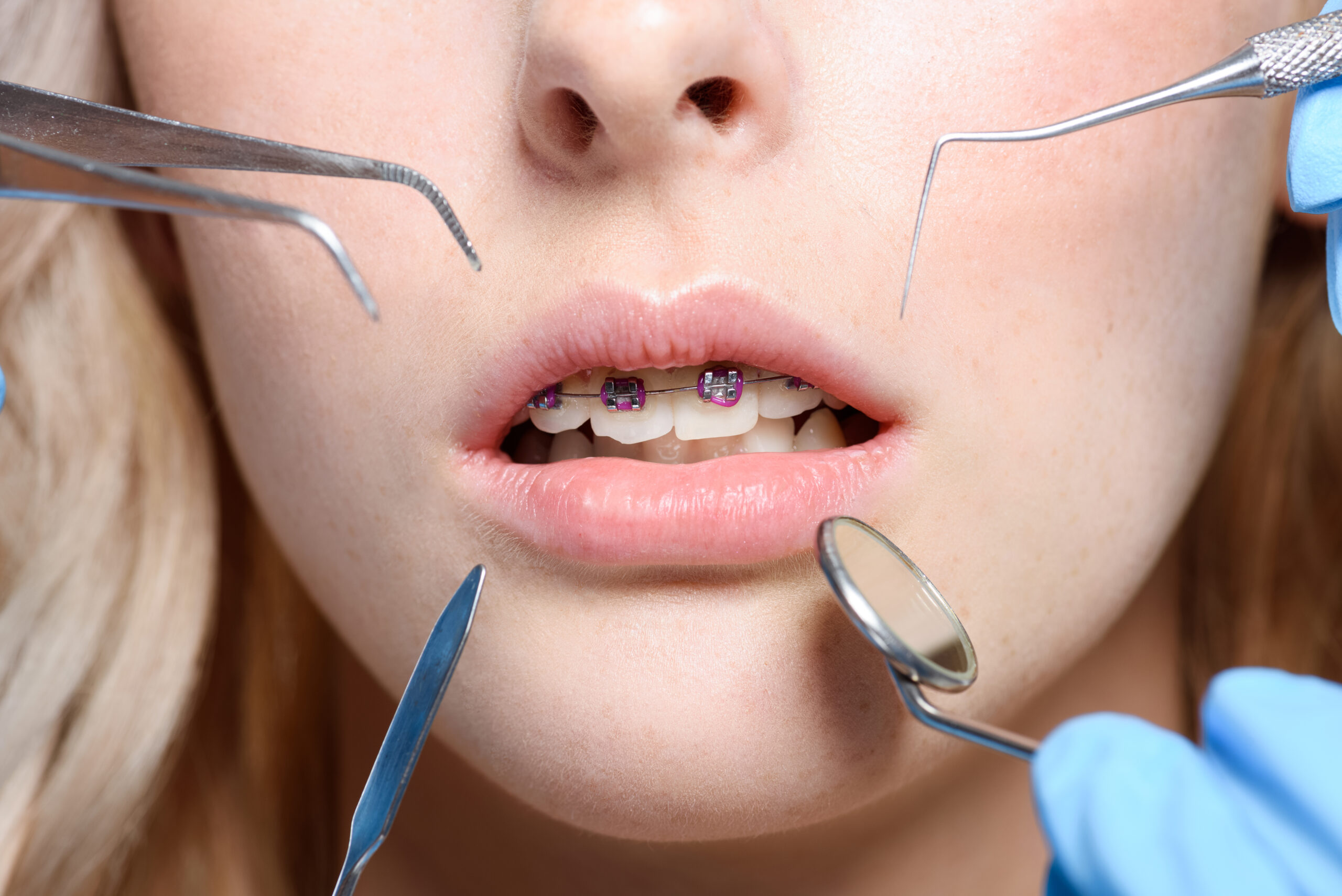Understand broken tooth repair
When you first realize you have a chipped or fractured tooth, the idea of broken tooth repair can feel overwhelming. You may notice sudden pain, increased sensitivity, or rough edges on the affected tooth. Even if the damage seems small, taking prompt action is vital for preserving your tooth and preventing further complications. At Cloninger Dentistry, we understand the worry you might experience when faced with an unexpected dental issue. Our empathetic and experienced team aims to provide a supportive environment, ensuring that you or your loved one feels informed and confident about the path toward restoring your smile.
Why your broken tooth matters
A broken tooth is more than a cosmetic concern. The structural integrity of your tooth is essential for everyday functions like chewing and speaking. Even small fractures can worsen over time, inviting bacteria into deeper parts of the tooth and potentially harming the pulp or surrounding tissues. If left unaddressed, a cracked tooth may lead to acute infections, severe pain, and even the need for tooth extraction. By seeking professional care quickly, you turn a potentially complex situation into one that can be managed with minimally invasive techniques, saving both time and discomfort.
A vital reason to address a broken tooth promptly is your overall oral health. Many individuals live with hairline cracks or minor chips, tending to ignore them until they become painful. However, the small problems often escalate if not treated early. Timely broken tooth repair can help you avoid complications like abscess formation and structural breakdown, ensuring you stay ahead of any issues. A proactive approach also gives you access to a wider range of treatment choices, such as tooth-colored fillings, dental crowns, and other restorative solutions.
Potential complications if untreated
Avoiding dental care when you have a fractured or broken tooth can lead to significant oral health challenges. According to research from the Cleveland Clinic, delaying treatment for a cracked tooth risks forming an abscess, which can spread infection to your jawbone, facial tissues, and even other areas of the body (Cleveland Clinic). Furthermore, the tooth’s structural integrity deteriorates over time, ultimately increasing the likelihood of a total fracture.
Below are some potential complications you may face if a broken tooth is left untreated:
- Intensified pain and sensitivity caused by an exposed pulp
- Swelling in the gums or jaw region
- Infection spreading through the root canal or surrounding tissue
- Need for more invasive procedures like extraction or implants
You deserve a solution that minimizes pain and disruption. Cloninger Dentistry’s comprehensive approach addresses these complications head-on by focusing on early detection, targeted treatment, and personalized care options that restore comfort and safety to your daily routine.
Explore common causes
Broken teeth can afflict individuals of all backgrounds. You might have cracked a tooth by biting down on hard candy or during a collision on the sports field. Regardless of the cause, recognizing how these fractures occur is a crucial step in prevention.
Hard foods and biting mishaps
Hard candies, popcorn kernels, and ice cubes can inflict stress on your enamel. When you chew these items, the force can cause microfractures in the tooth that may remain unnoticed initially. Over time, repeated stress on the same spot can lead to a substantial crack. To keep your teeth strong, consider taking the following precautions:
- Chew slowly and mindfully, especially when biting on dense foods
- Break harder items into smaller pieces before eating
- Schedule regular professional teeth cleaning to ensure your enamel remains healthy
The unpredictability of biting into a hidden pit in an olive or unpopped kernel in popcorn can produce sudden stress on your tooth. Being mindful during meals is one of the simplest strategies for avoiding unintentional tooth damage.
Teeth grinding
Teeth grinding, also known as bruxism, is a common cause of fractures and hairline cracks. Many people clench or grind their teeth at night or during periods of stress. This constant pressure weakens the enamel, leaving your teeth vulnerable to chips, cracks, or even breakage under moderate force. Experts at Delta Dental emphasize that nighttime teeth grinding contributes significantly to tooth damage (Delta Dental).
If you suspect you grind your teeth, consider discussing preventive measures with us during a routine dental checkup. A custom mouthguard can help reduce strain on your teeth by cushioning and redistributing the force of grinding, lowering the risk of fractures.
Oral accidents
Whether it happens on the basketball court, cycling trail, or even from slipping and falling at home, physical trauma is a top cause of dental fractures. Impact from a blow to the mouth can crack a tooth instantly, triggering immediate pain or discoloration. Using a mouthguard during contact sports is strongly recommended to protect your enamel and reduce the likelihood of severe damage. If an accident does happen, seeking emergency dental care quickly offers the best chance for preserving or reattaching tooth fragments.
Recognize symptoms now
Understanding the early warning signs of a cracked or broken tooth allows you to respond in a timely manner. Often, individuals focus solely on pain, but there are additional clues that can signal a deeper issue. By catching these signs early, you improve your odds of successful broken tooth repair while mitigating complications.
Warning signs to watch
Cracks vary in severity. Some are superficial and might not cause immediate discomfort, while others can extend into the deeper layers of the tooth. Keep an eye out for:
- Sharp pain while chewing or biting, especially when releasing pressure
- Increased temperature sensitivity (hot or cold foods and drinks)
- Intermittent pain that comes and goes
- A rough or jagged edge on a tooth’s surface
- Swelling or tender gums around a specific tooth
You may also notice pain that radiates along your jaw, or a sudden sharp twinge when you bite down in a specific spot. Do not ignore these warning signals. Scheduling an appointment with your dentist promptly can save you considerable time and discomfort.
When to see a dentist
If you notice persistent sensitivity, or pain that worsens over a few days, it is wise to reach out to a dental professional immediately. A thorough intraoral camera examination and digital xray imaging can help identify hairline fractures or deep cracks not visible to the naked eye. Early intervention makes it more likely you can avoid full tooth extraction or advanced infection.
In more serious cases, you might experience severe pain that disrupts sleep, or visible swelling in the jaw area. These situations could signal an abscess or a deep crack near the tooth’s nerve. For urgent dental needs, we encourage you to seek emergency dental care. At Cloninger Dentistry, our goal is to address your pain and stabilize your tooth. We can then develop a definitive plan for long-term restoration and enhanced oral health.
Learn key treatment options
Once your dentist diagnoses a cracked or broken tooth, you have a variety of treatment paths to consider. The right choice depends on the depth and location of the fracture, as well as your personal preferences and oral health background. Modern dental technology has expanded the range of minimally invasive solutions, making it possible to restore appearance, comfort, and function.
Dental bonding
For small chips or cracks that do not extend into the deeper layers of the tooth, dental bonding is an excellent minimally invasive approach. During this procedure, the dentist applies a tooth-colored composite resin and hardens it with a special ultraviolet light. According to WebMD, bonding is quick and rarely requires anesthesia (WebMD). It can typically repair minor fractures in a single visit, making it a convenient option if you prefer a same-day solution.
Bonding offers several key benefits:
- Restores the tooth’s natural shape and color
- Requires minimal tooth preparation
- Generally completed in under an hour
- Does not require extensive aftercare beyond regular brushing, flossing, and checkups
Dental crown or veneer
In cases of moderate to severe damage, your dentist may recommend either a dental crown or a veneer. Crowns—often called caps—cover the entire visible portion of your tooth and provide robust protection. Veneers, on the other hand, adhere to the front surface of the tooth. Both options maintain desirable aesthetics by blending seamlessly with your existing smile.
Comparing crowns and veneers
| Feature | Dental Crown | Dental Veneer |
|---|---|---|
| Coverage | Covers entire tooth | Covers front surface only |
| Use Cases | Large fractures, root canal | Mild to moderate chips, cosmetic fixes |
| Materials | Porcelain, ceramic, metal, resin | Porcelain or resin composite |
| Durability | Very strong | Strong, but thinner structure |
| Preparation | More tooth reshaping | Minimal reshaping required |
Your dentist will evaluate the location of your crack, your bite alignment, and other factors before recommending a crown or a veneer. If the fracture extends deep into your tooth, more comprehensive protection from a crown may be best. For surface-level chips, veneers are a popular solution that preserves more of your natural tooth.
Root canal therapy
When a fracture reaches the tooth’s pulp—the innermost part containing nerves and blood vessels—a root canal procedure often becomes necessary. Prompt treatment can save the tooth from extraction. According to research from WebMD and many other reputable sources, modern root canal procedures are more comfortable than ever, involving minimal discomfort during and after the process (WebMD).
During a root canal therapy procedure, the dentist cleans out the infected or inflamed pulp, disinfects the canal, and then fills and seals it. Often, you will need a dental crown placement to reinforce the tooth’s structure. This comprehensive approach aims to alleviate pain, protect against further damage, and restore full functionality.
When a root canal is necessary
Detecting pulp involvement can be tricky. Not everyone experiences intense pain initially. However, if you notice persistent throbbing aches, heightened sensitivity to hot or cold, or gum swelling near the fracture, you might have an infected pulp. Early intervention is essential to avoid the spread of infection beyond the tooth, which could lead to more serious complications and possibly an abscess. A thorough diagnostic exam, including digital xray imaging or 3d imaging dental diagnostics, helps determine the best course of action.
Extraction and implant
Sometimes, a crack is so extensive that it reaches below the gumline, making the tooth non-restorable. In these instances, extraction becomes the recommended alternative. Once the tooth is removed, you can explore a dental implant to fill the space. Implants replace the missing tooth root by fusing with the jawbone, ultimately supporting a crown that looks and feels like a natural tooth. While it demands a longer healing process—often four to six months—dental implant technology has advanced to provide reliable, stable outcomes.
If your fractured tooth is restorable, however, Cloninger Dentistry will do everything possible to preserve it through bonding, crowns, or root canal therapy. Extraction is generally reserved for circumstances in which infection or structural damage has compromised the tooth irreversibly.
See benefits of quick intervention
Addressing a broken tooth in its early stages ensures faster healing, reduces the need for invasive procedures, and dramatically lowers the risk of infection. Many individuals feel tempted to ignore minor discomfort, especially if the tooth is not causing intense pain. However, skipping or delaying care can result in bigger challenges down the road.
Preserving your oral health
An untreated crack can widen over time, eventually jeopardizing nearby teeth. Studies from Fifth Avenue Endodontics emphasize the importance of timely care to prevent severe complications like abscess formation and tooth misalignment (Fifth Avenue Endodontic). By fixing the problem early, you also help maintain balanced biting forces across your mouth, reducing unnecessary stress on other teeth. Furthermore, timely repair streamlines your path to full dental function, letting you eat, talk, and smile confidently.
Reducing infection risks
Infection is one of the most serious complications of a fractured tooth. Cracks create small entryways for bacteria, leading to the possibility of abscess development. If an abscess occurs, you might experience fever, severe pain, and swelling, as well as a potential spread of infection to other areas in your face or neck. By choosing to see a dentist immediately, you significantly lower the risk of these infections. Early broken tooth repair can prevent the issue from escalating and keep your mouth and body healthier overall.
Prevent further issues
When it comes to preserving your teeth, prevention is key. By adopting preventive strategies, you put yourself in a strong position to avoid repeat fractures or other oral health setbacks in the future.
Simple steps for prevention
Below are a few effective ways to help protect your smile:
- Wear a mouthguard. If you participate in contact sports or activities that risk facial trauma, a custom mouthguard is an invaluable asset.
- Address bruxism. If you grind your teeth at night, discuss a nighttime mouthguard with your dentist. By spreading the force of grinding, you minimize damage to your enamel.
- Maintain regular checkups. A routine dental checkup every six months can reveal hairline fractures before they worsen. During each visit, you can also request fluoride treatment to strengthen your enamel.
- Avoid biting hard objects. Do your best to break ice cubes, hard candy, or thick pretzels into smaller pieces before chewing.
- Practice excellent hygiene. Daily brushing and flossing, alongside professional teeth cleaning, can keep your teeth resilient against decay and reduce the risk of fractures.
Implementing these practices will go a long way toward preserving the progress you make after a successful repair. Our knowledgeable team is ready to counsel you on personalized steps that take into account your specific risk factors, whether that is bruxism, sports-related impacts, or large fillings that weaken tooth structure.
Choose Cloninger Dentistry
If you are facing a broken tooth or any other oral health concern, Cloninger Dentistry is here to help you reclaim confidence in your smile. Our family-focused practice champions a supportive, empathetic approach that recognizes the unique experiences of each patient. We strive to connect with you on a personal level, ensuring you feel seen and heard while exploring treatment options.
Comprehensive family care
We understand that dental needs vary widely across age groups. You might be searching for pediatric dental care for a child, or hoping to maintain strong oral health with gum disease treatment. Perhaps you prefer more advanced procedures like custom denture fitting or surgical tooth extraction. Whatever your situation, our team offers a well-rounded array of services that cater to the diverse needs of your entire family. From tooth extraction service for teeth that cannot be saved to tailored toothache pain relief for sudden discomfort, we prioritize preserving your health and comfort.
Our devotion to family dentistry also extends to preventing issues before they escalate. Tools like oral cancer screening, private dental consultation, and written treatment estimate promote transparency and allow you to stay fully informed about your dental journey. Our overarching goal is to build a dependable foundation for the entire family, minimizing the risk of emergencies and simplifying long-term care.
Personalized approach
At Cloninger Dentistry, every treatment plan starts with you. We evaluate your medical and dental history, discuss your concerns, and conduct comprehensive diagnostics—like 3d imaging dental diagnostics—to identify the best course of action for your broken tooth repair or other dental needs. If you need an immediate procedure, our same day dental appointment option often allows you to address urgent concerns without undue delay. By tailoring our approach, we ensure that each patient receives the individualized care necessary for successful results.
Our practice is also an insurance friendly dental practice. We offer a range of solutions that minimize out-of-pocket costs, and our flexible financing dental arrangements can help you manage expenses efficiently. By taking advantage of transparent dental pricing, you can avoid surprises and budget for your care with confidence.
Finally, our commitment does not end once you leave the office. We encourage you to take advantage of routine follow-up appointments, especially if you have had a root canal or porcelain crown service. By reviewing your progress, discussing any concerns, and making adjustments as needed, we make sure your broken tooth repair stands the test of time.
FAQs about broken tooth repair
-
How do I know if my tooth is truly broken or just chipped?
Most chips stay on the tooth’s outer surface, affecting only a small portion of enamel. Fractures, however, can extend into internal layers—including the dentin and pulp. If you experience persistent pain, heightened sensitivity, or swelling, you might have a deeper fracture. A thorough examination, including digital xray imaging, can determine the extent of the damage. -
Is a broken tooth an emergency requiring same-day care?
It depends on the severity of your symptoms. Significant pain, bleeding, or swelling generally requires emergency dental care. Similarly, if a large piece of the tooth has broken off, leaving sharp edges or exposing the pulp, you should seek professional help as soon as possible. For less urgent cases, a same day dental appointment may still be beneficial to prevent the fracture from worsening. -
What if the broken tooth does not hurt?
Even if you do not feel pain right now, a small crack may still expand over time. Bacteria can infiltrate, potentially triggering infection or the need for more complex procedures down the line. It is always best to schedule a new patient dental exam or routine consultation soon after noticing any crack or chip. Early intervention often makes for simpler and more affordable treatment. -
Is tooth extraction always required for a severely broken tooth?
Not necessarily. Your dentist will explore every possible route, such as a root canal therapy with a dental crown placement, to save your tooth. Extraction is a last resort when damage extends below the gumline or infection is too extensive to manage with conventional methods. If an extraction does become necessary, you can benefit from an implant or other replacements to maintain a healthy bite and natural look. -
How do I protect my broken tooth until I see the dentist?
If you cannot schedule immediate care, rinse gently with warm salt water to keep the area clean and reduce the risk of infection. You can also place temporary dental cement from a drugstore over sharp edges to protect the gum and tongue. Avoid chewing on the side of the broken tooth, and steer clear of overly hot or cold foods that might aggravate sensitivity. Contact us for personalized guidance or to arrange urgent care if needed.
By addressing your broken or cracked tooth promptly, you safeguard your oral health and avoid unnecessary procedures. At Cloninger Dentistry, we consider your unique situation and preferences, presenting a tailored plan to restore your smile. Whether you need straightforward bonding or a more advanced option like surgical tooth extraction followed by an implant, we are committed to offering the support necessary for a successful outcome.
Our experienced team stands ready to answer questions, guide you through restorative treatments, and help you maintain a healthy, confident smile. With a blend of empathy, expertise, and a desire to foster reassurance, we invite you to explore treatment options with us. Start your journey toward lasting oral health by scheduling your next visit. We look forward to providing the compassionate, individualized care you deserve.










